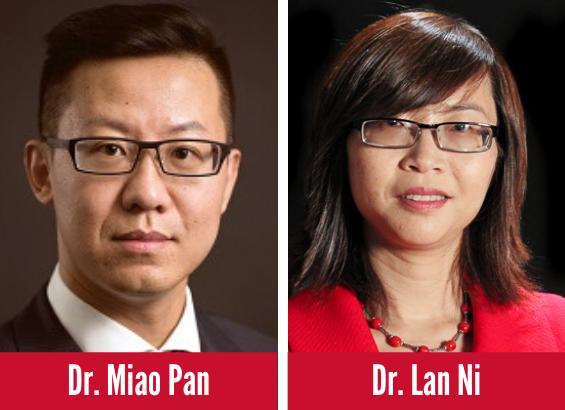
A team of researchers at the University of Houston and University of Texas at San Antonio are actively working to change this narrative, and their idea just landed a major win. Recently, the National Science Foundation awarded a $200,000 grant to their project, which will create a mobile, crowdsourced COVID-19 symptom map.
The research project, Location Privacy Preserving COVID-19 Symptom Map Construction via Mobile Crowdsourcing for Proactive Constrained Resource Allocation, will span a year. The resulting COVID-19 symptom map will be powered by mobile crowdsourcing and protecting individuals’ location privacy.
“This project will allow us to identify potential outbreak areas so that the healthcare resources can be allocated proactively,” said Miao Pan, principal investigator on the project and an associate professor at the Department of Electrical and Computer Engineering.
“While developing a symptom map is one of the main goals, the other is to do so in a way that protects users’ privacy. This project will allow people to self-report without disclosing their location, allowing them to participate for the public good without fear of stigmatization.”
On a societal level, such a map will allow policymakers and healthcare providers to track community spread in a timely, effective manner that reduces the risk of exposure, lowers the cost of tracking and monitor larger areas more rapidly.
In addition to Pan, the interdisciplinary research team includes co-principal investigator Lan Ni, an associate professor at the Valenti School of Communication, and a research team at the University of Texas at San Antonio.
Ni, who is managing the social science aspects of the project, is interested in understanding how community engagement can influence the way people seek and share information about their COVID-19 symptoms. At the helm of a small team of graduate students at the Valenti School of Communication, she will conduct online surveys and remote interviews with community members over the next year to better understand this relationship between community engagement and communication activity.
“I hope my part of the research will make contributions to the scholarship of communication – particularly in my area of research on intercultural public relations and community engagement. In addition to its practical applications during this pandemic, this project can help us advance theory development in identifying culturally diverse publics and their communication behaviors, as well as intercultural relationship management,” said Ni.